For adult patients with relapsed or refractory MF or SS who have received at least one prior systemic therapy1
AS SOON AS YOU SEE MYCOSIS FUNGOIDES PROGRESSING,
Actor portrayal. Patient presentation may vary based on stage of disease or severity.
INTERRUPTING IT COULD MAKE ALL THE DIFFERENCE.1

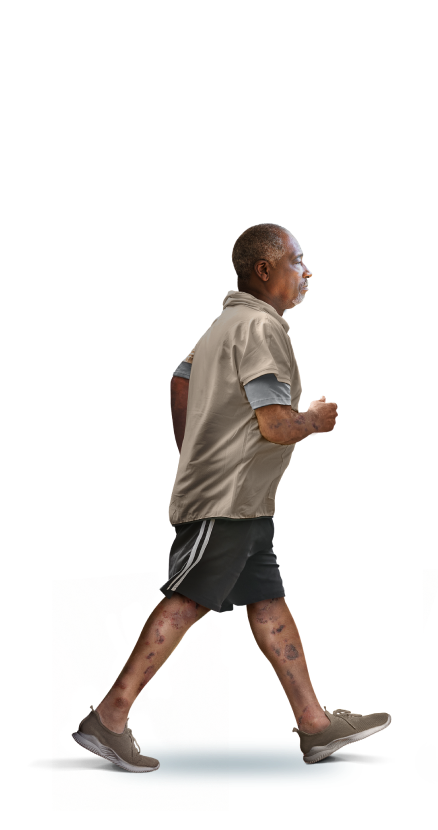
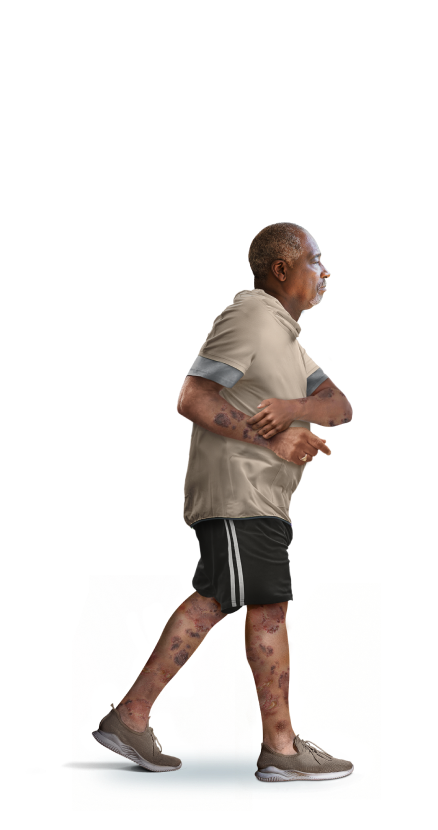
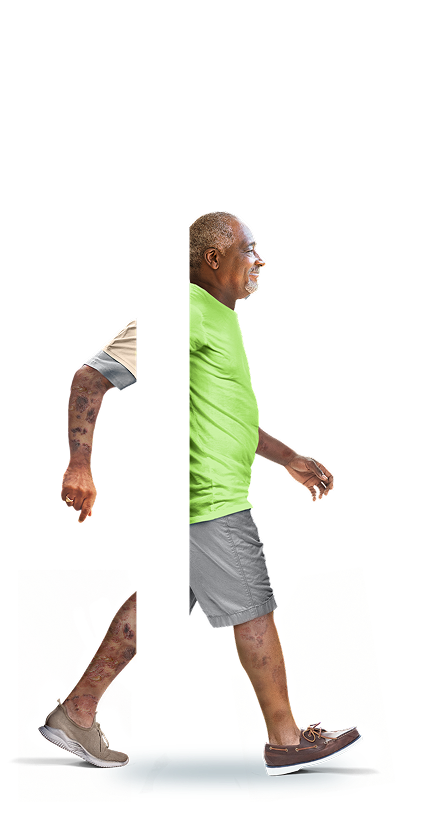
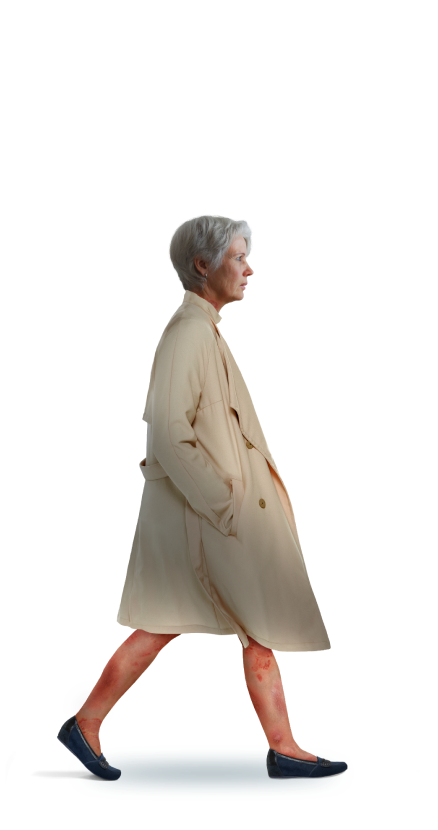
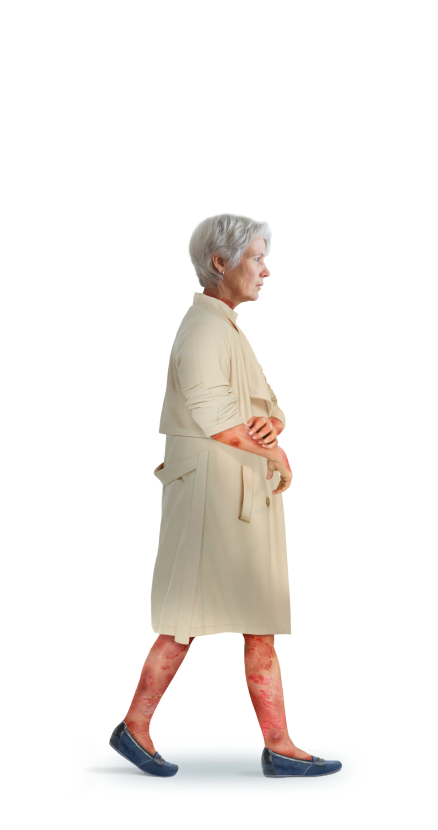
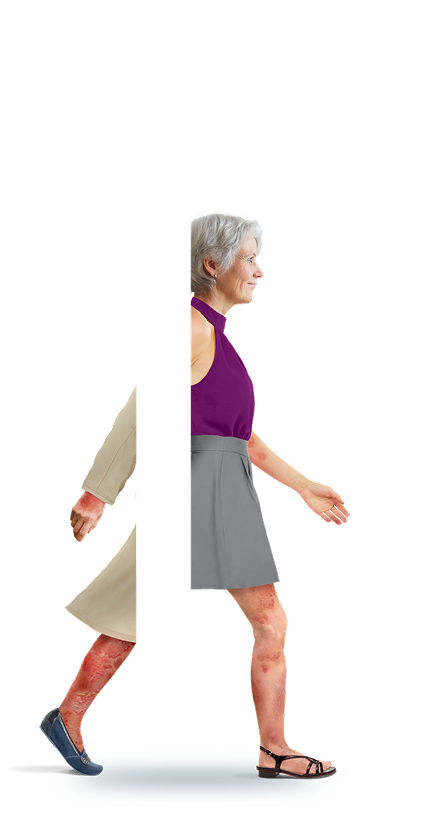
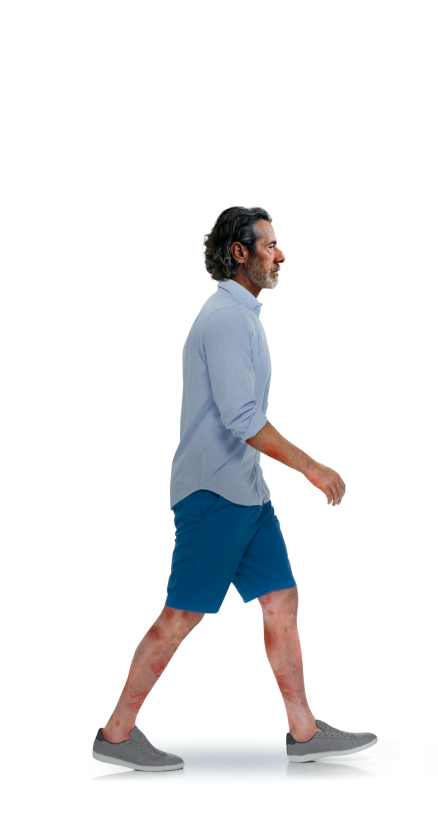
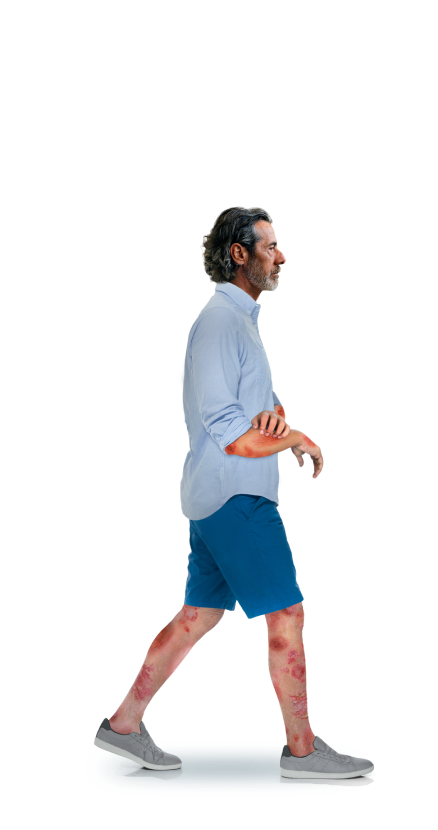

WHEN PATCHES AND PLAQUES WORSEN,
IT MAY BE TIME FOR POTELIGEO.1
ONLY POTELIGEO targets CCR4 on malignant T cells for destruction through antibody-dependent cellular cytotoxicity.1,2,a
PROGRESSION-FREE SURVIVAL (PFS): POTELIGEO more than doubled median PFS vs vorinostat (7.6 months vs 3.1 months; HR=0.53; P<0.001).1,b
MEDIAN TIME TO RESPONSE (TTR): POTELIGEO had an overall median time to response of 3.3 months (range: 2.0 months to 6.4 months) in a post hoc analysis.3,c,d
Choose the efficacy and
durability of
POTELIGEO
against MF and SS1
POTELIGEO has
a
consistent
safety profile
Help eligible patients
access
POTELIGEO
and receive support
- aMechanism of action (MOA) was determined through in vitro studies. No direct link can be made between MOA and efficacy.
- bBased on investigator-assessed outcomes from a randomized, open-label, phase 3 trial of 372 patients with Mycosis Fungoides (MF) and Sézary Syndrome (SS).1
- cTTR was measured based on a post hoc analysis; a finding from the post hoc analysis cannot be used to demonstrate differences between treatments and may not be applicable to all patients initiating POTELIGEO.
- dResponse was defined by international response criteria for Mycosis Fungoides (MF) and Sézary Syndrome (SS).4,5
- CCR4=C-C chemokine receptor type 4
- POTELIGEO [package insert]. Kyowa Kirin Inc., Princeton, NJ USA.
- Quadri I, Reneau JC, Hanel W, Chung CG. Advancements in the treatment of mycosis fungoides and Sézary syndrome: monoclonal antibodies, immunotherapies, and Janus kinase inhibitors. Front Immunol. 2023;14:1291259.
- Kim YH, Bagot M, Pinter-Brown L, et al. Mogamulizumab versus vorinostat in previously treated cutaneous T-cell lymphoma (MAVORIC): an international, open-label, randomised, controlled phase 3 trial. Lancet Oncol. 2018;19(9):1192-1204.
- Kim YH, Bagot M, Pinter-Brown L, et al. Mogamulizumab versus vorinostat in previously treated cutaneous T-cell lymphoma (MAVORIC): an international, open-label, randomised, controlled phase 3 trial. Lancet Oncol. 2018;19(9):1192-1204. Supplementary appendix published online August 9, 2018.
- Olsen EA, Whittaker S, Kim YH, et al. Clinical end points and response criteria in mycosis fungoides and Sézary syndrome: a consensus statement of the International Society for Cutaneous Lymphomas, the United States Cutaneous Lymphoma Consortium, and the Cutaneous Lymphoma Task Force of the European Organisation for Research and Treatment of Cancer. J Clin Oncol. 2011;29(18):2598-2607.

